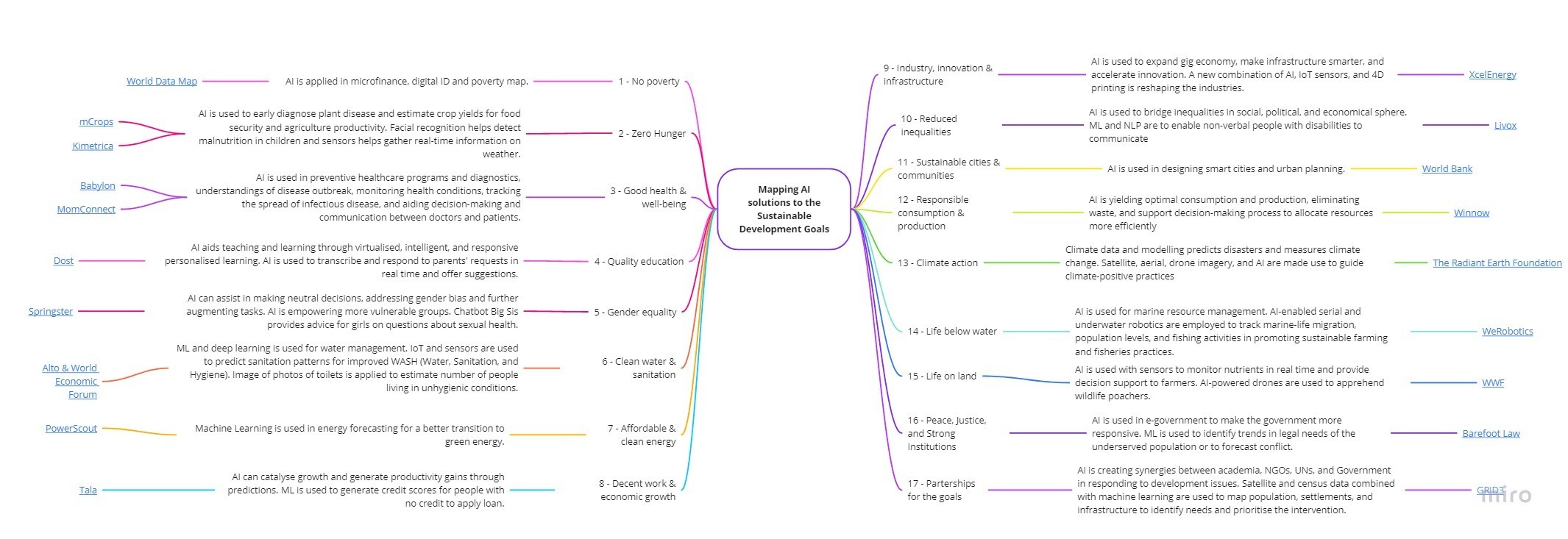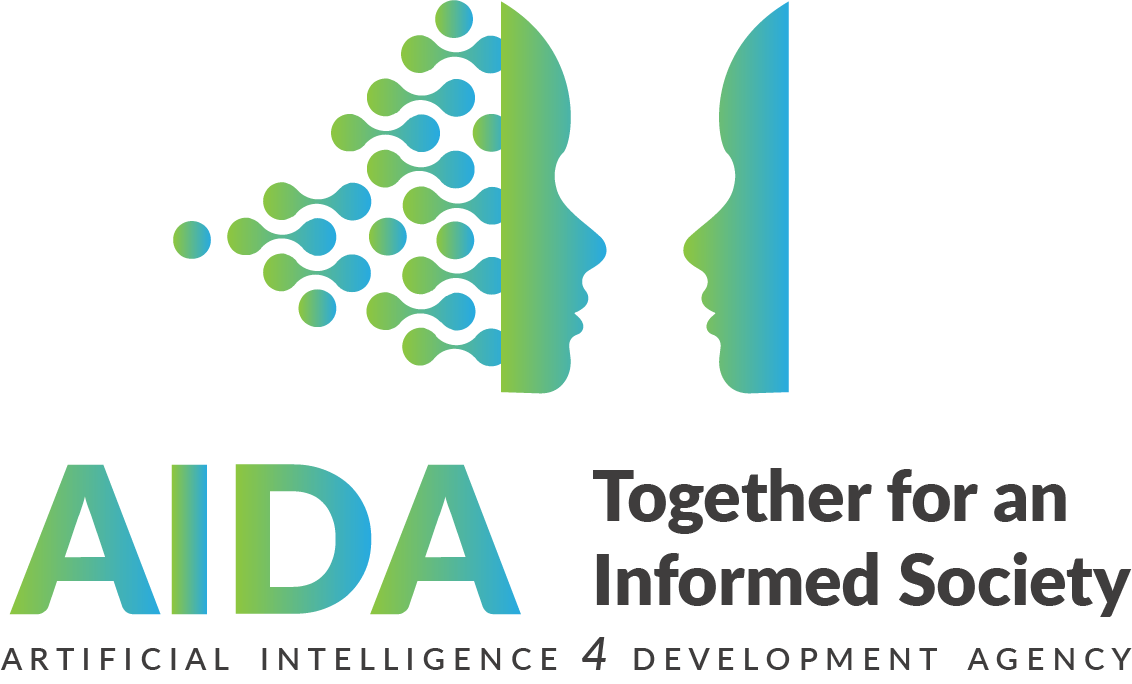In the past few months, we all have seen new technologies and artificial intelligence (AI) tools being deployed around the world to tackle the COVID-19 crisis. AI is also expected to have a substantial impact on the Sustainable Development Agenda by providing concrete solutions to enable the delivery of all 17 Sustainable Development Goals (SDGs).
At our core, we seek to understand how AI shapes the sustainable development landscape and what solutions exist already in the world. Here we present a snapshot on how AI can translate into achieving each of the SDGs. The map below is inspired from existing research and gives examples of existing solutions implemented across the globe. Our goal with this mapping initiative is to develop and maintain a curated, open and fully accessible data base of projects that support one or more of the SDGs.
 Mindmap – AI applications designed to help achieve the SDGs
Mindmap – AI applications designed to help achieve the SDGs
While many AI solutions have certainly proven to be advantageous, many experts feel that AI brings challenging implications. Some of these challenges are:
- Poor availability, accessibility, and quality of data;
- Limited capacity to engage with or use AI;
- Data ownership, privacy, and security;
- Perpetuating bias and discrimination.
Now, there are several ways to respond to existing AI complexities. Some of the key approaches to note are:
- Frameworks for assessing the quality of – and potential biases inherent in – the datasets used by AI system, the performance of AI models, and the level of confidence in the results they generate.
- Robust approaches to interpreting data and analysis generated by AI and how to use it in the decision-making process, including understanding the potential cost of errors.
- The use of mixed methods including qualitative, participatory approaches to validate or invalidate findings.
References:
1. McKinsey Global Institute. (2018). Notes from the AI frontier. Applying AI for Social Good. Discussion paper.
2. Andersen, L. (2019). Artificial intelligence in International Development: Avoiding ethical pitfalls. Accessed at https://jpia.princeton.edu/news/artificial-intelligence-
international-development-avoiding-ethical-pitfalls
3. Global Information Society Watch. (2019). Artificial intelligence: Human rights, social justice, and development.
4. The International Development Innovation Alliance (IDIA). (2019). Artificial intelligence in International Development. A discussion paper.

